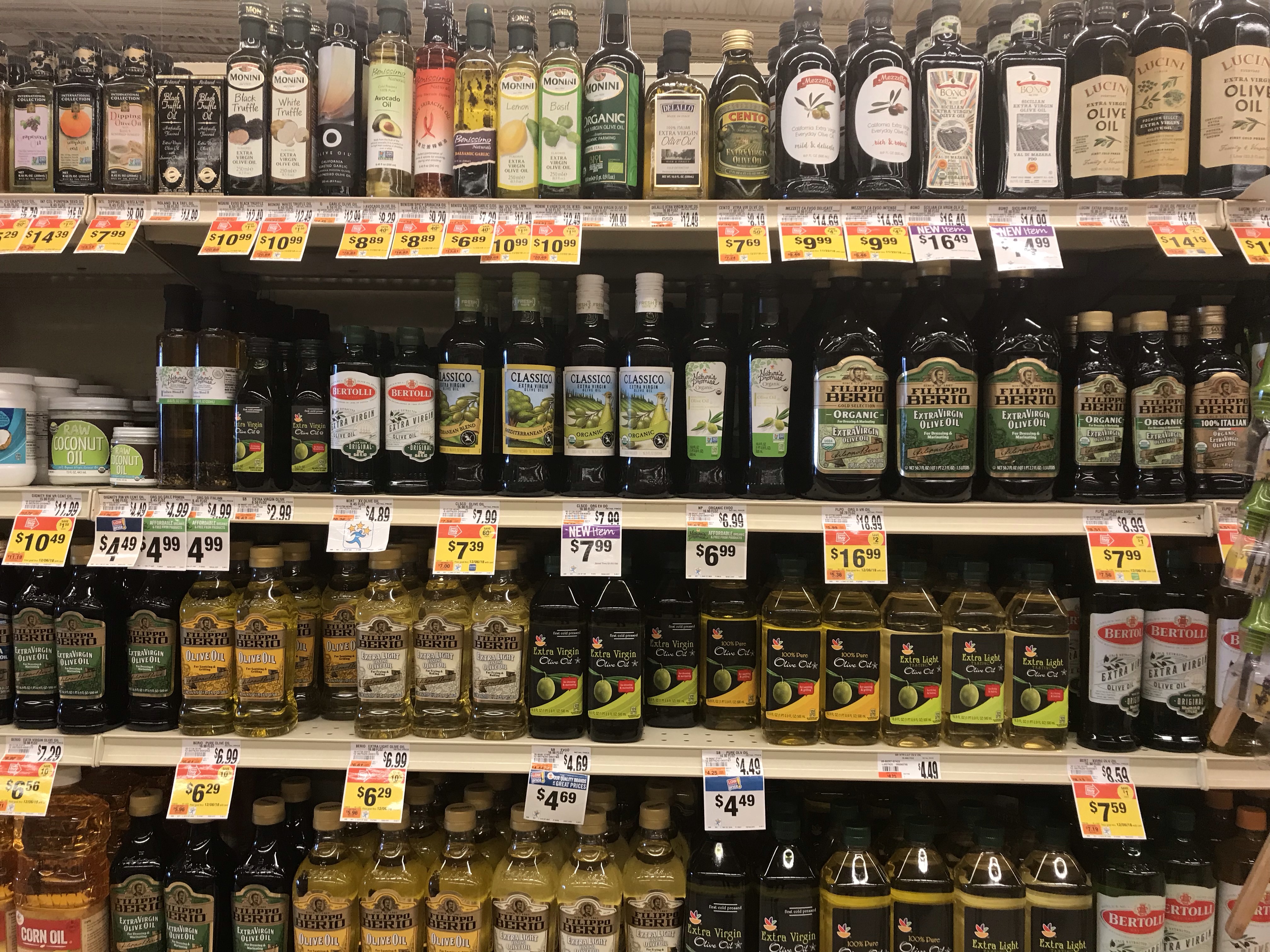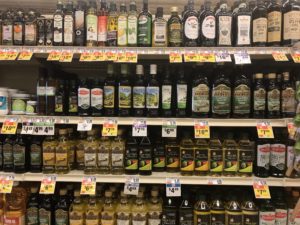How to Buy and Store Your Culinary Oils for Good Health


Glass bottles are typically on the top shelf.
Cooking oils, also called culinary oils, include olive, corn, avocado, peanut, coconut oil and much more. We use these oils daily for frying, sautéing, and roasting or as a base ingredient in salad dressings. Just about every type of oil can be found in your grocery store as well as gourmet stores and health food stores. We often hear about which oils are the best for heart health, but we don’t talk about how to store them properly for freshness and good health.
For most of us, storing cooking oils is as simple as putting them in the cabinet next to our other basic baking ingredients such as vinegars, baking powder and sugar. Some of us even pour them into fancy bottles and place them on the countertop for show. Some of the bottles even having an exposed pouring spout for simplicity. BUT buying these oils in bulk or not storing them properly can damage the quality, freshness, taste and our health.
Did you know that olive oil, a heart healthy oil, can contribute to toxicity and inflammation in your body if not stored properly? Probably not! When cooking oils are exposed to oxygen, light or heat, they can become oxidized and turn rancid. When fat becomes oxidized, it breaks down into unstable molecules that are toxic to our body. These highly oxidative fats disrupt our bodies metabolic processes, damage cells and can cause inflammation. Don’t’ give olive oil a bad rap! Learn how to protect your olive oil and your health at the same time!
HERE ARE SOME TIPS FOR BUYING AND PROPERLY STORING YOUR CULINARY OILS:
- ONLY BUY WHAT YOU NEED: Oil is not like wine, it does not improve with age. It is best to buy small bottles or if buying in bulk, transfer to smaller bottles made of stainless steal or dark glass.
- AVOID PLASTIC BOTTLES: You should NEVER buy or transfer your oil to a plastic container. Plastic bottles can contain PVC’s- polyvinyl chlorides, which are toxic chemicals that can leak from your plastic into your oil. Also, plastic is not a good barrier to heat, sunlight or oxygen.
- STAY COOL: Store oils in a cool environment. You can store some oils in the refrigerator or you can get as close as you can to that temperature without going over. For olive oil and many other oils, the average storing temperature should be between 50 to 64 degrees F. If you want to buy in bulk, store in a cool basement and then transfer your oil as needed to smaller bottles for immediate use. Avoid leaving bottles on counters, in direct sunlight OR right new to the hot stovetop! If your store in the refrigerator, they may turn cloudy and thicken- this is okay. Let them sit at room temperature and they will return to their normal state.
- AVOID AIR: How many of you open a bottle of oil while baking and leave it sitting out on the counter without the cap on? I know that is what I used to do because I didn’t know any better. Always put the cap back on immediately and make sure it is tight. Avoid open spouts and make sure you are using dark glass as a barrier against oxygen.
- AVOID SHOWING OFF: How many of you put your delicious looking oils in clear glass bottles for display on your kitchen countertop, where they are exposed to sunlight, heat, and oxygen all the time? Store them in a cool dark place and in a dark glass bottle for protection. Show off your kitchen with overflowing bowls of fresh vegetables and fruits instead!
